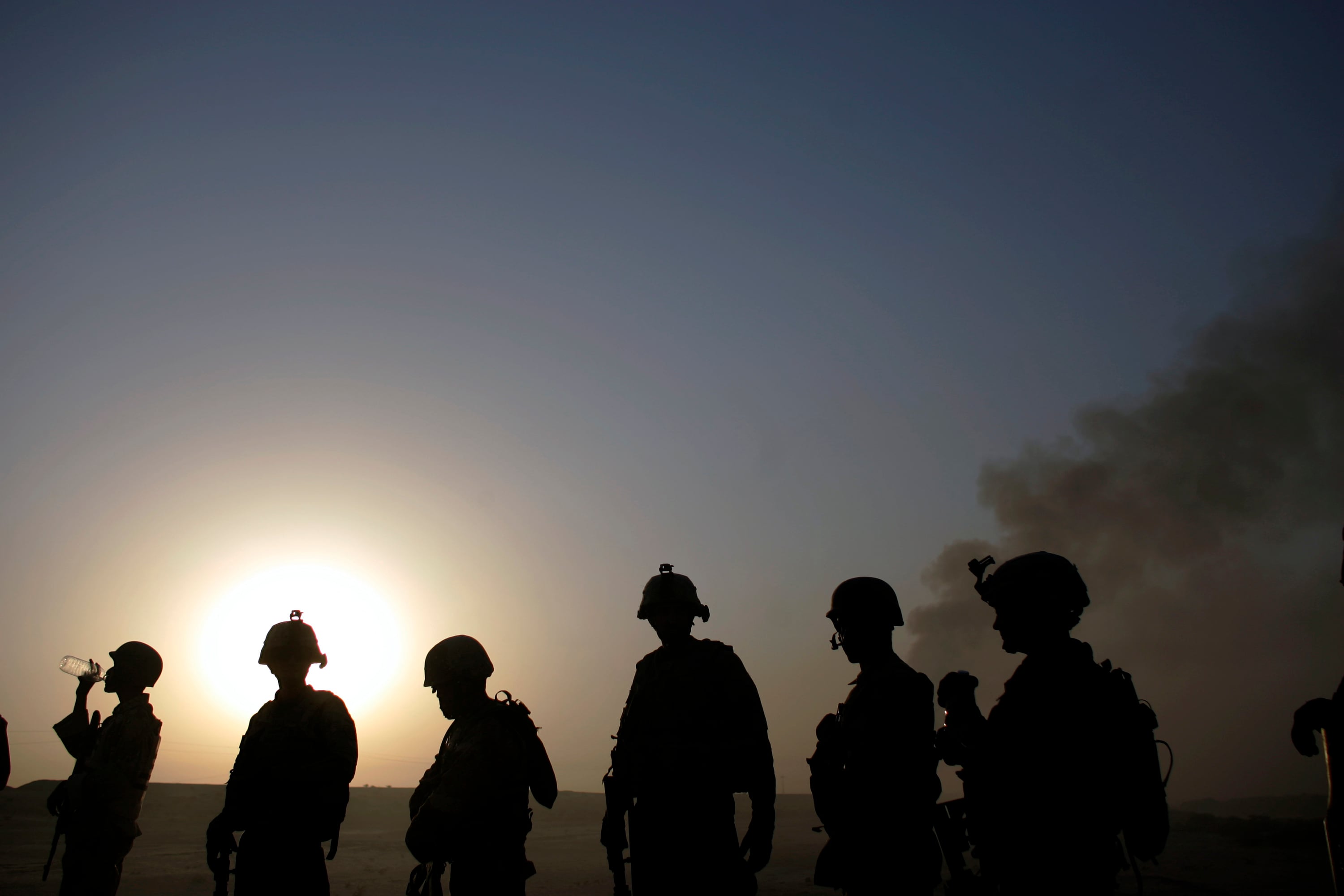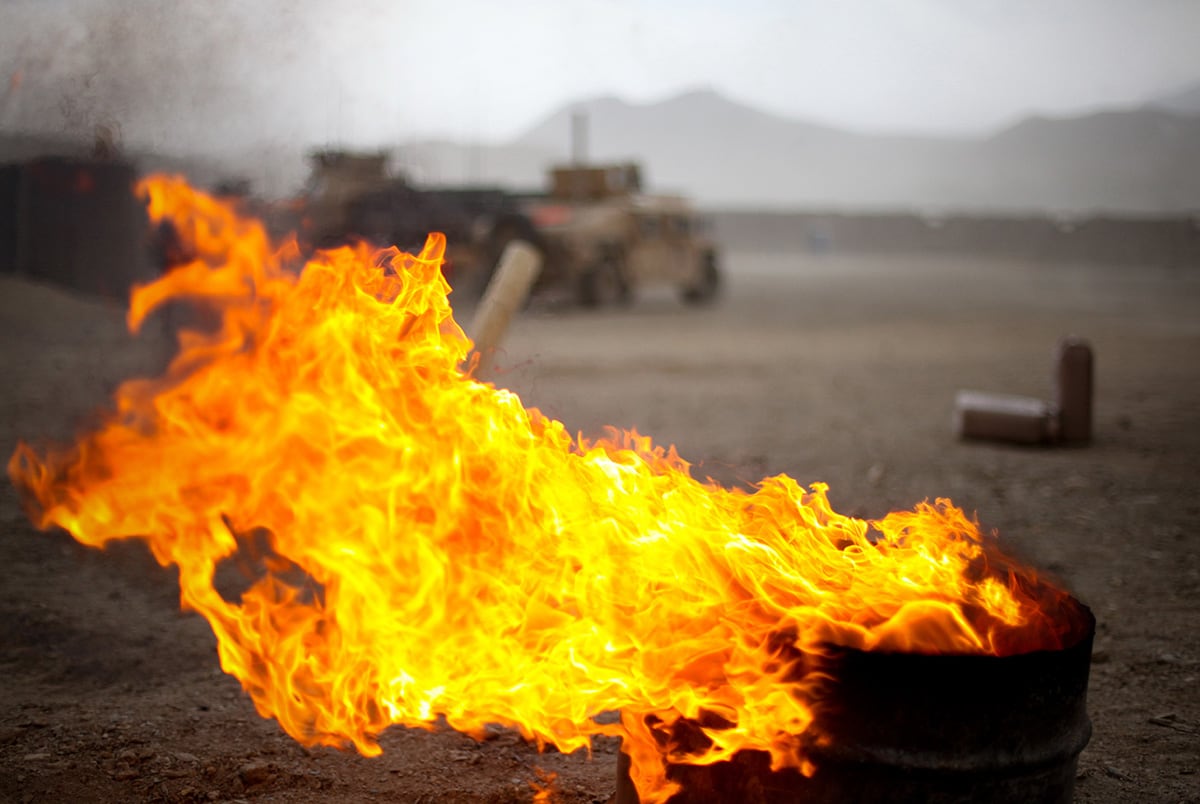Decade after decade, American men and women have deployed to countries across the globe in the defense of our freedom. Thousands of them were exposed to harmful toxins during that service that resulted in life-altering health conditions. And far too many of them face yet another battle here at home when seeking the care and the benefits they desperately need.
Our nation’s service members, veterans, their families and their survivors are all too familiar with the lasting effects caused by exposure to toxic substances during military service. For many, these devastating long-term health effects are sometimes not identified for years, leaving veterans with limited options once they finally seek the timely care and the assistance they need.
RELATED

The use of toxic chemicals in war zones and combat operations dates back more than a century ago. In the trenches of World War I, it was mustard gas. In the jungles of Vietnam, it was Agent Orange. And despite repeated examples of the harmful and lasting impacts of toxic exposure on our military men and women, the widespread use of burn pits — waste disposed by burning — in the Middle East has left our latest generation of veterans struggling with the increasingly serious and complex medical conditions associated with exposure.
According to the Department of Veterans Affairs, approximately 3.5 million post-9/11 combat veterans may have experienced some level of exposure to burn pits during their service. Many of these veterans could be living with undiagnosed illnesses linked to military toxic exposures. For this new generation of veterans, treatment options and resources are not always available or even fully understood. These veterans do not even receive routine screenings for toxic exposures that could connect certain conditions to their service and ensure they are receiving the care they need from VA providers.
Our veterans deserve better. And they are tired of waiting for solutions.
That is why we — as the leaders of the Senate Veterans’ Affairs Committee — have introduced the Health Care for Burn Pit Veterans Act — bipartisan legislation that will offer every post-9/11 veteran suffering from effects of toxic exposures access to timely and high-quality care through the VA.
It does so by expanding the period of VA health care eligibility for combat veterans who served after September 11, 2001 from five years following discharge to 10 years.
It would also provide a one-year open enrollment period for post-9/11 veterans who have already missed their window of eligibility. And it would establish an outreach plan for VA to contact veterans who did not enroll during their initial period of enhanced eligibility to ensure they are fully aware of the options available to them.
We are proud that our bipartisan legislation, supported by the entire Senate Veterans’ Affairs Committee and numerous Veterans Service Organizations, would mandate training for health care providers and benefits specialists to ensure a higher level of competence across the VA to make certain veterans receive exemplary treatment and service. Finally, our legislation would direct VA to incorporate a clinical screening to inquire about a veteran’s potential exposures and symptoms commonly associated with toxic exposure.
RELATED

This legislation is the first step in a phased approach to ensure Congress is finally able to deliver comprehensive and historic toxic exposure reforms. Looking ahead, there is still much work to be done.
In the coming weeks, we will be announcing additional bipartisan efforts that will bring us closer to the creation of a fair and transparent process for VA to establish new presumptive conditions, and to the delivery of long-overdue benefits to millions of toxic exposure veterans across the country.
In the meantime, time is running out. VA can and should continue using existing authority to evaluate and amend its presumptive decision-making process to grant benefits through the Veterans Benefits Administration.
Solutions to this complex problem cannot be generated by Congress alone. They require a strategic and systematic approach — informed by stakeholders and coordinated with VA and experts in medicine and research. And it is crucial that reform is appropriately implemented seamlessly, and in a way that does not disrupt ongoing VA operations or the delivery of care and benefits to veterans already in the system.
Words alone cannot deliver the solutions owed to our nation’s heroes. We must seize the opportunity at hand to advance legislation that will bring us one step closer to connecting all generations of veterans with the care they need and have earned. Passing the Health Care for Burn Pit Veterans Act is the first step in doing just that.
Sen. Jon Tester, D-Mont., serves as the chairman of the Senate Veterans Affairs Committee. Sen. Jerry Moran, R-Kan., is the committee’s ranking member. They introduced the Health Care for Burn Pit Veterans Act last week, which passed unanimously out of committee on Feb. 2 and will be considered by the full Senate.
Have an opinion?
This article is an Op-Ed and as such, the opinions expressed are those of the authors. If you would like to respond, or have an editorial of your own you would like to submit, please email Military Times Managing Editor Howard Altman.
Want more perspectives like this sent straight to you? Subscribe to get our Commentary & Opinion newsletter once a week.





